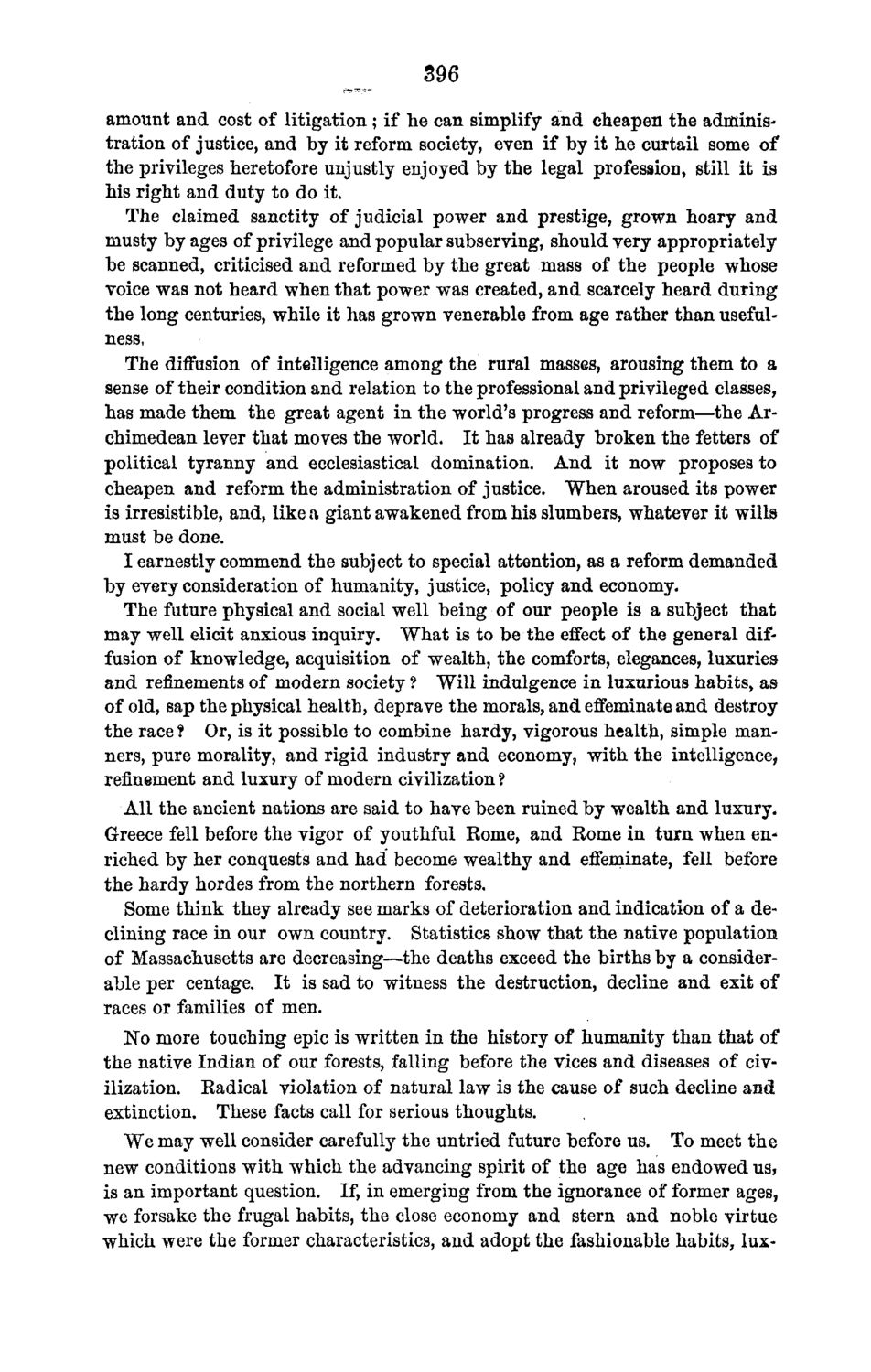| |
| |
Caption: Board of Trustees Minutes - 1870
This is a reduced-resolution page image for fast online browsing.

EXTRACTED TEXT FROM PAGE:
396 amount and cost of litigation ; if he can simplify and cheapen the administration of justice, and by it reform society, even if by it he curtail some of the privileges heretofore unjustly enjoyed by the legal profession, still it is his right and duty to do it. The claimed sanctity of judicial power and prestige, grown hoary and musty by ages of privilege and popular subserving, should very appropriately be scanned, criticised and reformed by the great mass of the people whose voice was not heard when that power was created, and scarcely heard during the long centuries, while it has grown venerable from age rather than usefulness, The diffusion of intelligence among the rural masses, arousing them to a sense of their condition and relation to the professional and privileged classes, has made them the great agent in the world's progress and reform—the Archimedean lever that moves the world. It has already broken the fetters of political tyranny and ecclesiastical domination. And it now proposes to cheapen and reform the administration of justice. When aroused its power is irresistible, and, like a giant awakened from his slumbers, whatever it wills must be done. I earnestly commend the subject to special attention, as a reform demanded by every consideration of humanity, justice, policy and economy. The future physical and social well being of our people is a subject that may well elicit anxious inquiry. What is to be the effect of the general diffusion of knowledge, acquisition of wealth, the comforts, elegances, luxuries and refinements of modern society ? Will indulgence in luxurious habits, as of old, sap the physical health, deprave the morals, and effeminate and destroy the race ? Or, is it possible to combine hardy, vigorous health, simple manners, pure morality, and rigid industry and economy, with the intelligence, refinement and luxury of modern civilization ? All the ancient nations are said to have been ruined by wealth and luxury. Greece fell before the vigor of youthful Rome, and Rome in turn when enriched by her conquests and had become wealthy and effeminate, fell before the hardy hordes from the northern forests. Some think they already see marks of deterioration and indication of a declining race in our own country. Statistics show that the native population of Massachusetts are decreasing—the deaths exceed the births by a considerable per centage. It is sad to witness the destruction, decline and exit of races or families of men. No more touching epic is written in the history of humanity than that of the native Indian of our forests, falling before the vices and diseases of civilization. Radical violation of natural law is the cause of such decline and extinction. These facts call for serious thoughts. We may well consider carefully the untried future before us. To meet the new conditions with which the advancing spirit of the age has endowed us, is an important question. If, in emerging from the ignorance of former ages, we forsake the frugal habits, the close economy and stern and noble virtue which were the former characteristics, and adopt the fashionable habits, lux-
| |